Sharing our research at the 14th ISIE SEM conference
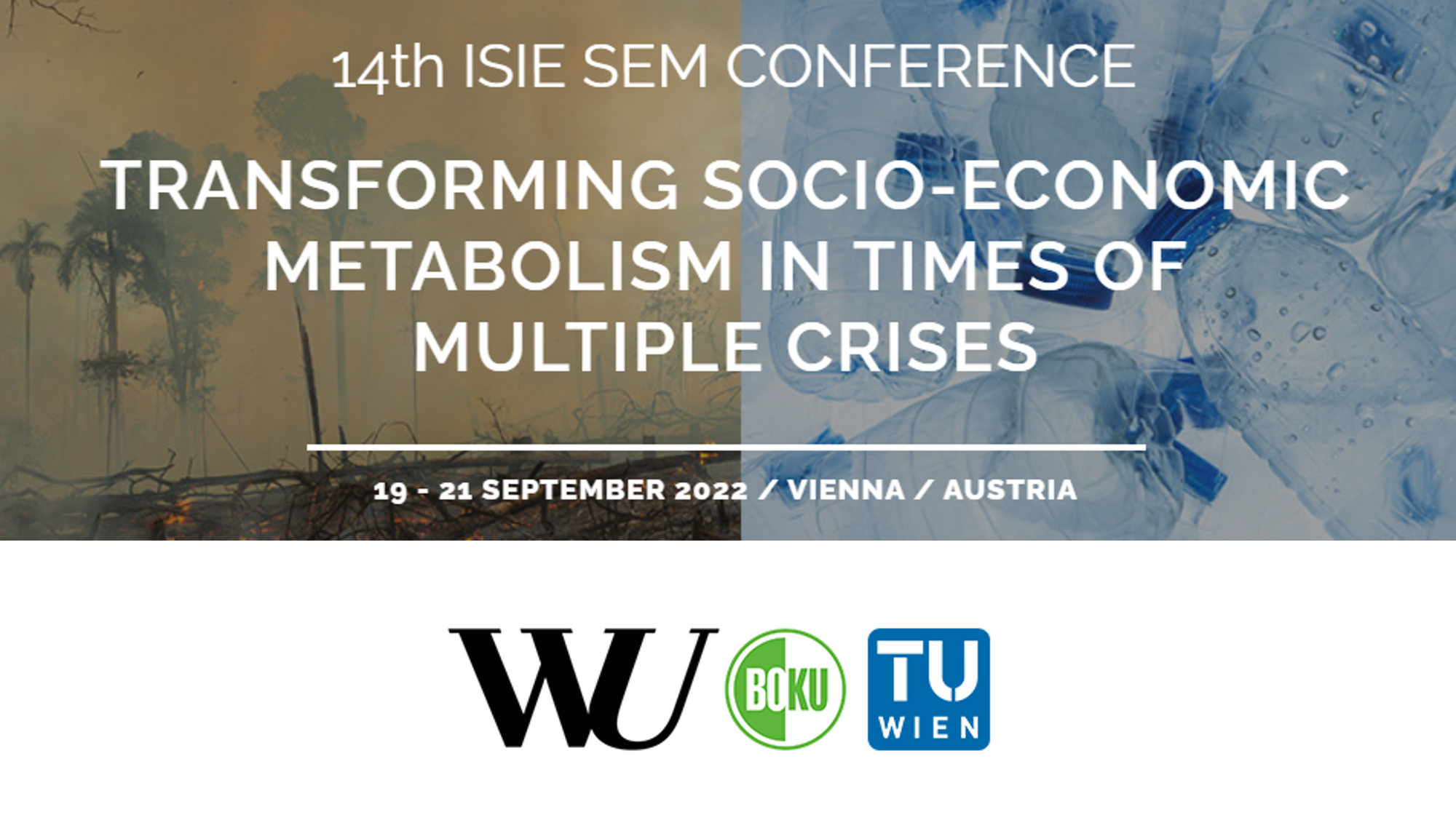
On the 19-21 September, the Socioeconomic metabolism (SEM) section of the International Society of Industrial Ecology (ISIE) organized the 14th ISIE SEM conference in Vienna. Co-organized by the Vienna University of Economics and Business (WU), the University of Natural Resources and Life Science, Vienna (BOKU) and TU Wien (TU), the conference was covering a large variety of topics ranging from urban metabolism, circular economy, modelling of the stock-flow-service nexus to open science. Seven people from our IndEcol team joined the conference: Edgar Hertwich, Meng Jiang, Romain Billy, Fernando Aguilar Lopez, Lola Rousseau, Kamila Krych and Kajwan Rasul.
During the conference, IndEcol members presented their latest research. The first one to present right after the opening session was Lola Rousseau, who showed her latest research on urban material stock of roads. The next day, Kamila Krych talked about trends in product lifetimes using dynamic material flow analysis (MFA) and even made some jokes to keep the public entertained since she was given the last presentation slot of the day! During the last day of the conference, Meng Jiang presented his poster on the role of capital investment in China’s material development [1]. Kajwan Rasul, who is working with input-output data, gave a presentation of the drivers of emissions embodied in global metal consumption. Fernando Aguilar Lopez explained the product-component framework [2] allowing to model systems where a failure of a critical component can be the reason for product discard. Fernando showed how this framework could be used for electric cars and batteries. As the very last presenter of this conference, Romain Billy gave some insights from his work on the passenger car market and how its transformation can affect the demand for aluminium and its carbon footprint.
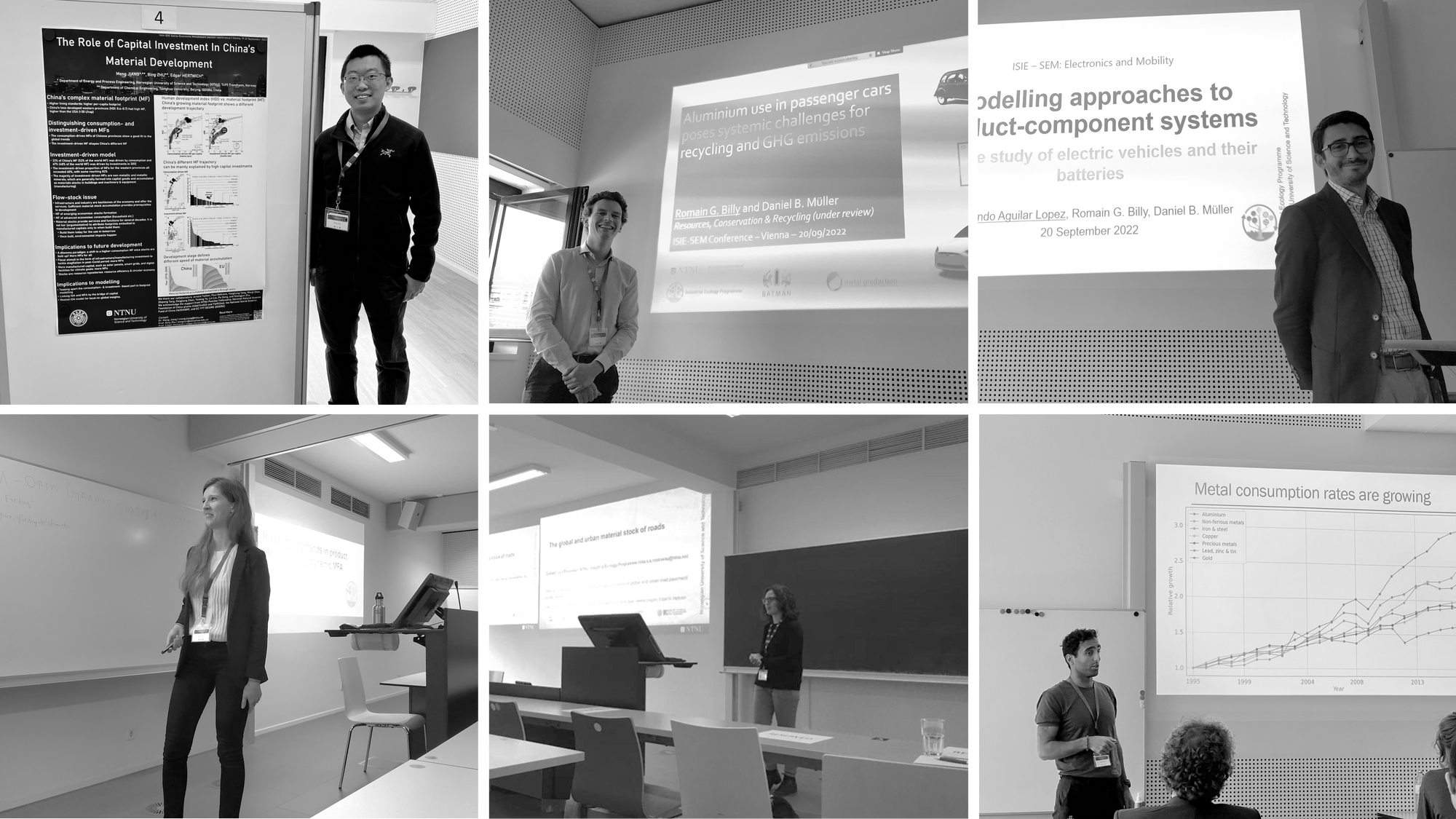
The conference was the opportunity to meet the research community on Socio-Economic Metabolism. This topic is gaining more and more interest, and the community is growing quite fast. More than 150 researchers were participating at the conference. It was therefore not possible to network with everyone!
This conference was also the opportunity to meet with former colleagues. A reunion picture was taken after the conference dinner (as a side note, all the food provided during the conference was vegetarian and delicious!).
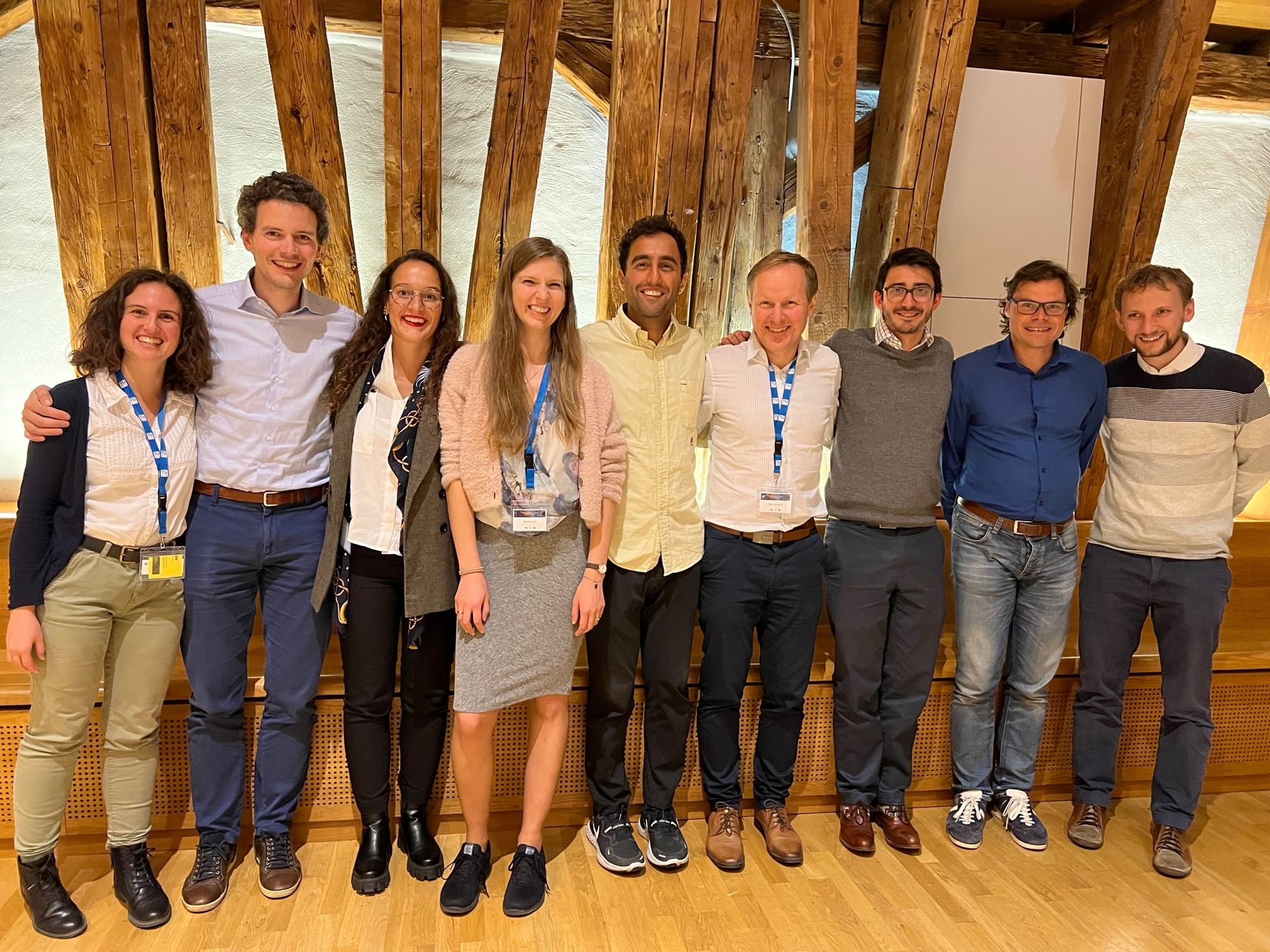
All the IndEcol members enjoyed the conference. This was even the first conference for several of the early-career researchers. It was a lot of fun as shown on the picture below:
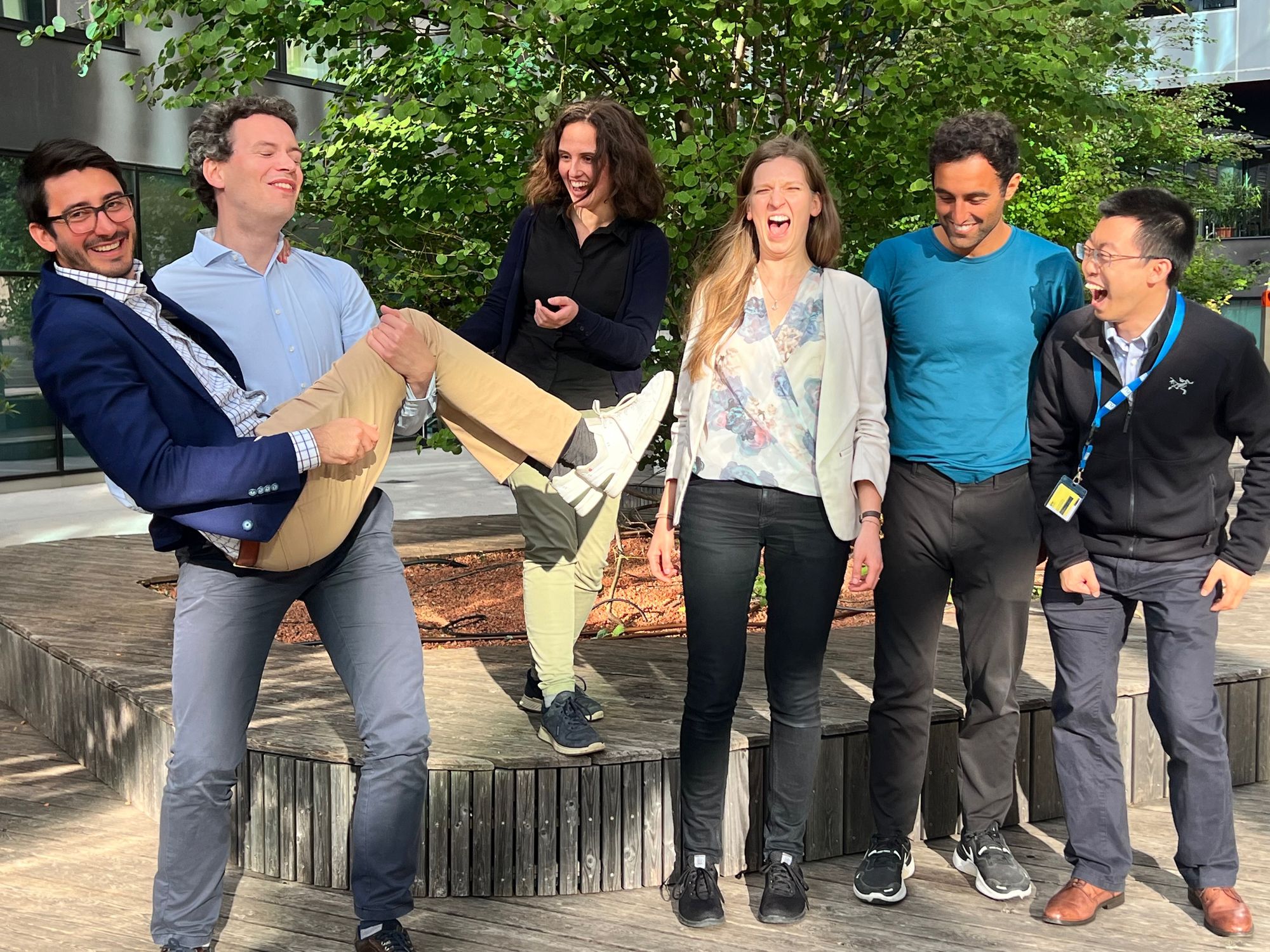
After the conference, Kamila and Lola chose to travel back to Trondheim by train and bus. A total distance of around 2100 km had to be covered! Door-to-door, around 60 hours were required. By plane, it would have taken only around 9 hours. However, Kamila and Lola were glad to have done such a trip! They could visit some old friends on the way and discover new cities (Hamburg and Copenhagen). They also wanted to reduce the carbon footprint of the trip. A plane trip would have caused around 230 kgCO2eq per person, while a train/bus trip caused around 115 kgCO2-eq. If all the trains were powered by low-carbon electricity, the impact of the trip would have decreased by almost half. [3] This shows the importance of both behavioural and technological changes for a sustainable future, which hopefully can soon become the reality, partly thanks to the research we do at IndEcol!
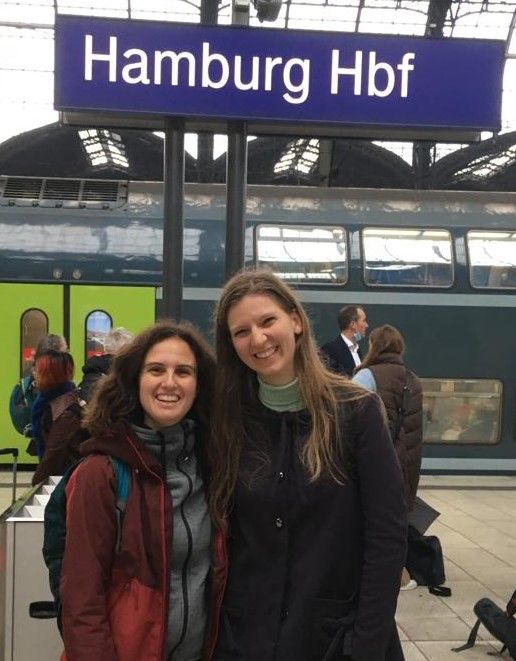
[1] Jiang, M., et al., (2022). Different Material Footprint Trends between China and the World in 2007-2012 Explained by Construction-and Manufacturing-associated Investment. One Earth, 5(1), 109-119.
[2] Aguilar Lopez, F., Billy, R. G., & Müller, D. B. (2022). A product–component framework for modeling stock dynamics and its application for electric vehicles and lithium-ion batteries. Journal of Industrial Ecology, 00, 1– 11. https://doi.org/10.1111/jiec.13316
[3] Ecoinvent v3.8 - Data for person-km transport, assuming A) plane trip Vienna-Oslo-Trondheim, B) train-train-bus-train trip assuming German trains until Copenhagen and French trains (proxy for Norway) for Oslo-Trondheim.

